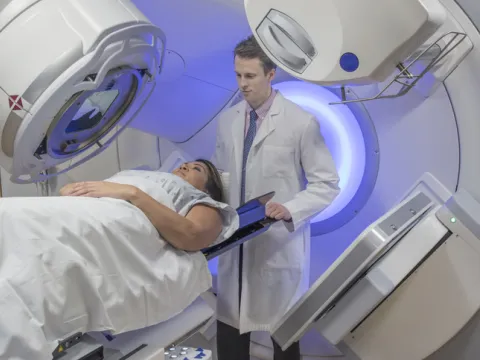- AdventHealth
International Collaborative Research Review Article Published in Drug Discovery Today
Sarfraz Ahmad, PhD
AdventHealth Cancer Institute
Ganji P. Nagaraju1, Prameswari Kasa2, Begum Dariya3, Nagalakshmi Surepalli4, Sujatha Peela5, Sarfraz Ahmad6
1Department of Hematology & Medical Oncology, Winship Cancer Institute, Emory University, Atlanta, GA 30332, USA; 2Dr L. V. Prasad Diagnostics & Research Laboratory, Khairtabad, Hyderabad 500004, India; 3Department of Biosciences & Biotechnology, Banasthali University, Banasthali 304022, India; 4Dr. B. R. Ambedkar Open University, Hyderabad 500033, India; 5Department of Biotechnology, Dr. B..R. Ambedkar University, Srikakulam 532410, India; 6AdventHealth Cancer Institute, Orlando, FL 32804, USA
Gastrointestinal (GI) malignancies account for substantial mortality and morbidity worldwide. GI cancers are complex disease, resulting from genetic, epigenetic alterations, and environmental factors. They are generally promoted by dysregulated signal transduction and epigenetic pathways, which are controlled by specific enzymes.
Recent studies demonstrated that histone deacetylases (HDACs) together with DNA methyltransferases (DNMTs) have crucial roles in the signal transduction/epigenetic pathways in GI regulation. In this review, we discuss various enzyme targets and their functional mechanisms responsible for the regulatory processes of GI malignancies. We also discuss the epigenetic therapeutic targets that are mainly facilitated by DNMT and HDAC inhibitors, which have functional consequences and clinical outcomes for GI malignancies. Our review also highlights foundation for future research with novel epigenetic biomarkers, therapeutic targets, and for insights into clinical interventions. Moreover, targeting the dysregulated epigenetic mechanism could assist with this by overwhelming cancer heterogeneity and promoting the reprogramming of cancer homeostasis. This potentiates efficacy and improves cytotoxicity of chemotherapeutic drugs and immune checkpoint inhibitors when used with epigenetic strategies.
Additionally, epigenetic profiling is essential for prognostic and predictive biomarkers, which can be used as a supportive aid for current diagnostic and therapeutic strategies that predict the response of the drug. However, the complexity of epigenetic molecular mechanisms reflects a substantial challenge and necessitates detailed study of the cellular environment and the array of therapeutic targets.
Highlights
- Discusses the epigenetics in GI cancers
- Explores the metastatic role(s) of epigenetics in GI cancers
- Presents epigenetics as biomarkers for the diagnosis and monitoring of GI cancers
- Epigenetics as therapeutic solutions for GI cancers
For more information or to refer a patient, call one of our Gastrointestinal Oncology Nurse Navigators: Erica Corcoran, MSN, RN, OCN, AOCNS, ONN-CG, at Call407-303-5981, or Wyntir Purtha, BSN, RN, OCN, at Call407-303-5959.
Read the article: https://www.sciencedirect.com/science/article/abs/pii/S1359644621002026
Recent News

AdventHealth Cancer Institute Advances the Use of CAR T-Cell Therapy for Multiple Myeloma
CAR-T therapies have emerged as new treatment options for certain types of cancer through a one-time infusion that can lead to long-lasting remission.

AdventHealth Graduate Medical Education Program Celebrates 50 Years
Growing from a family practice residency to 24 accredited programs, AdventHealth’s Graduate Medical Education (GME) program celebrates 50 years.

New Clinical Trial Explores Digital Intervention for Apathy in Late-life Depression
Afflicting 30-50% of patients with late-life depression, apathy is a challenging psychiatric syndrome in older adulthood that can result in lack of motivation leading to poor self-care, physical...

AdventHealth Performs Central Florida’s First Liver Transplant for Unresectable Colorectal Liver Metastases
In June 2025, AdventHealth Abdominal Transplant Surgeon and Surgical Oncologist Ryan Day, MD, worked with a multidisciplinary team to perform Central Florida’s first liver transplant for unresectable...

AdventHealth Neuroscience Institute First in Florida to be Recognized as a GammaTile Center of Excellence
GammaTile is the first and only tile-based radiation therapy for the treatment of
operable brain tumors. The AdventHealth Neuroscience Institute began performing GammaTile procedures in 2021 and was...

An AdventHealth Collaboration Explores the Impact of Microgravity and Electrical Stimulation on Muscle Cell Health in Space
Using a muscle lab-on-chip model aboard the International Space Station (ISS), AdventHealth Translational Research Institute’s Dr. Paul Coen has been working with a multidisciplinary team from the...

AdventHealth Neuroscience Institute Among First in U.S. to Offer Phase IIa Clinical Trial of Troculeucel for Moderate Alzheimer’s Disease
While most clinical trials for Alzheimer’s disease have focused on patients with early or mild cognitive impairment, roughly 30% of those with Alzheimer’s have moderate stage disease for which there...

AdventHealth Translational Research Institute Selected as Clinical Site for National Study of Muscle, Mobility and Aging (SOMMA)
Under the leadership of Scientific Director and Principal Investigator Bret H. Goodpaster, PhD, the AdventHealth Translational Research Institute (TRI) is now enrolling men and women 70 years of age...

AdventHealth Neuroscience Institute Administers First Dose of Investigative NK Cell Therapy to Person with Alzheimer’s Disease
Under a single compassionate use Investigational New Drug (IND) authorization cleared by the U.S. Food and Drug Administration (FDA), the AdventHealth Neuroscience Institute worked with NKGen Biotech...

New Study Published in the New England Journal of Medicine Shows the Addition of Regional Nodal Irradiation Does Not Decrease Rate of Invasive Breast Cancer Recurrence in Patients with Negative Axillary Nodes Following Neoadjuvant Chemotherapy
Findings of the phase III, multicenter, randomized NSABP B-51-RTOG 1304 clinical trial were recently published in the New England Journal of Medicine with AdventHealth Cancer Institute’s Dr. Mamounas...

AdventHealth Study Exploring the Use of MR-Guided Focused Ultrasound (MRgFUS) to Disrupt the Blood-Brain Barrier for Treatment of Alzheimer’s Disease
Under the leadership of Dr. Valeria Baldivieso and Dr. Chandan Reddy, the AdventHealth Research Institute is the first and only site in Orlando offering the Exablate Blood-Brain Barrier (BBB)...

AdventHealth Research Institute Offers Phase II Clinical Trial of Etanercept for Treatment of Blast-Induced Tinnitus
Approximately 1 billion people throughout the world suffer from tinnitus (ringing in the ears), and it is the number one disability of those who serve in the U.S. military. The condition can disrupt...
